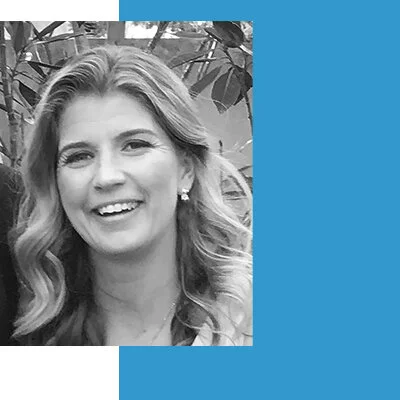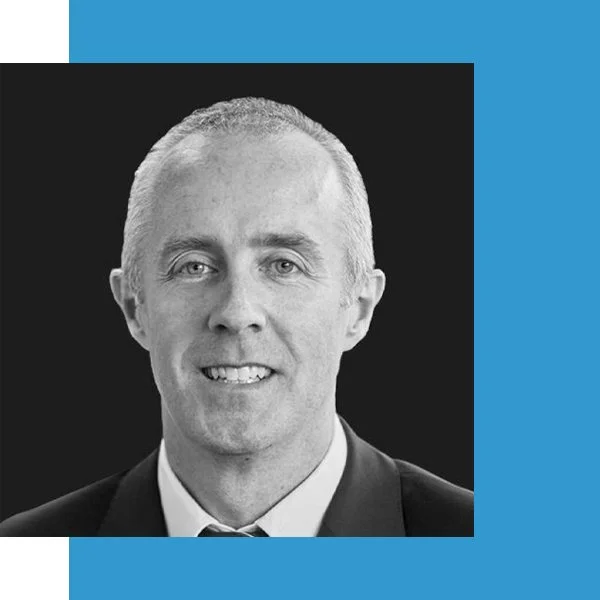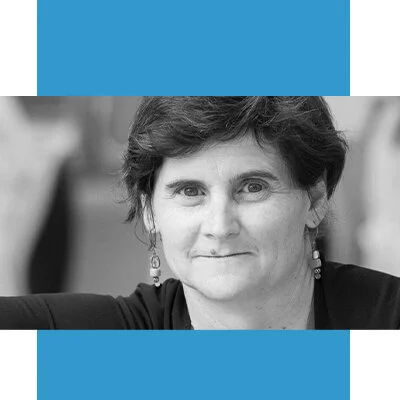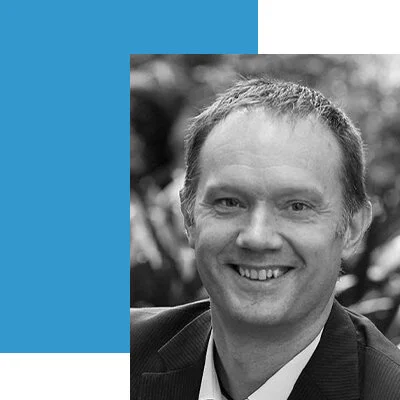Board & Scientific Advisory Committee
Why Choose Us?
We are a diverse group of people who share a keen interest in the impact of human Homer gene variants and other rare scaffolding gene variants on people’s lives. Several members have been directly impacted by the crippling effects of Homer gene variants, while others are more interested in scientific advances and translating them into practice.
At The Homer Hack, we understand that donating our time, energy, and money to this worthy cause will soon result in helping individuals to gain a better understanding of neurological disorders.
READ MORE
At The Homer Hack, we innovate in the public interest. We collaborate with people by listening, learning, and constantly improving our ways so that they can share their care experiences in easier, safer, and more meaningful ways.
We also hope that these scientific and medical breakthroughs will lead to a better understanding of clinical methods for the treatment of a wide variety of neurological disorders in Australia.
We keep people and the stories about how they got their mental health disorders at the heart of everything we do. We know that what we do is important. If we continue finding and developing solutions for homer mutations, we can make a huge difference then.
To fully understand the goals and objectives of The Homer Hack, get to know more about our team of experts below. In that way, you will know how you can benefit from us and how we can help you in return.
Board
Matt Finnis - Acting Board Chair
D’Arne Finnis
Associate Professor Libby Callaway
Paul Dolan
Professor Terrence O’Brien
Patrick Potts
Scientific Advisory Committee
Professor Terrence O’Brien - Chair
Associate Professor Libby Callaway
Professor Lisa Foa
Professor David Amor
Professor Russell Dale
Research
Dr. Rob Gasperini - Lead
Daniel Bligh
Professor Robert Weintraub
D’Arne Finnis
Neuro-Developmental Educator and Founder of The Homer Hack
D’Arne Finnis has been an Early Childhood Educator since 1997 and has worked in numerous settings across Melbourne. She went on to focus on the area of Neuro-developmental physiology and the part this played in children’s learning and development.
READ MORE
She has a passion for supporting children and families in developing individualised learning environments to enhance a child’s well-being and growth. In the past, D’Arne has represented Heartkids Victoria as board secretary and was involved in All Play – Making the world fit for all kids - as an advisory board member.
She founded The Homer Hack in 2019 in an effort to develop awareness and advocate for the effects of mutations in scaffold genes in neurological conditions.
Matt Finnis
Chief Executive Officer of Cranlana Centre for Ethical Leadership.
Prior to joining Cranlana Matt was the CEO of St Kilda Football Club for 9 years.
READ MORE
He has more than 17 years’ experience as a chief executive, first as CEO of the AFL Players’ Association and then as CEO of the St Kilda Football club. His achievements include establishing the Danny Frawley Centre for Health and Wellbeing that is co-located with St Kilda Football Club, staging the world’s first Pride Game in professional team sport and delivering record growth in club revenues from membership, sponsorship and philanthropy. At the AFLPA he was a strong advocate for player interests across a range of workplace, commercial and welfare settings, instigating a pension annuity scheme for AFL players, the first of its type for athletes in Australia. Matt worked as a commercial lawyer before his AFL roles, is currently a non-executive director at the Victorian Equal Opportunity and Human Rights Commission and also has extensive experience on boards supporting community causes and organisations including; Ladder (Chairman), AFL SportsReady (Director), Surfing Australia (Director), Surf Life Saving Victoria (Director and Company Secretary) and HeartKids Australia (Founding director). Matt has been a founding member of the Sport Male Champions of Change Group since 2015 working with influential leaders to redefine men’s role in taking action on gender inequality and in 2016 was awarded the Straight Ally of the Year at the GLOBE Community Awards.
Associate Professor Libby Callaway
Independent Living Stream Lead, Rehabilitation, Ageing and Independent Living Research Centre and Occupational Therapy Department, School of Primary and Allied Health Care, Monash University
READ MORE
Associate Professor Callaway is a registered occupational therapist and a national leader in the field of occupational therapy research, with a focus on research evaluation to inform models of housing, technology, support and workforce design for people with acquired neurological disabilities. In addition to being the principal therapist in a community-based private occupational therapy practice (Neuroskills Pty Ltd), Libby is also the Independent Living Stream lead in the Rehabilitation, Ageing and Independent Living Research Centre at Monash University. Libby has contributed to state and federal government reviews of service systems and models for people with disability, and works extensively with the Transport Accident Commission (Victoria) and National Disability Insurance Agency on housing policy and strategy. Libby leads a multi-year, multi-million dollar program of housing, technology and workforce design, and has published extensively across these areas. This research program is funded by the Transport Accident Commission and Department of Health and Human Services in Victoria, and the Australian Federal Government Department of Social Services. Libby is the current President of the Australian Rehabilitation and Assistive Technology Association (ARATA), Australia's peak body for assistive technology users, advisors, developers, suppliers and educators. She is also a voluntary Director of The Rundle Foundation, a non-profit organisation focused on growing a range of housing options for people with acquired brain injury.
Paul Dolan
Paul has over 22 years of experience working with and in Health, Mental Health, and Human Services in both the UK, Australia and New Zealand. He has held leadership, executive and non-executive positions across consulting, government, not-for-profit and private sectors. Paul is currently a Partner at Anadrom, an Advisory business focussed on shaping the next generation of equitable, sustainable systems and services that strengthen people and communities.
READ MORE
Paul has been a Non-executive Director and Chair of the Finance & Risk Committee at Phoenix Australia - the national Centre of Excellence in Posttraumatic Mental Health.
Professor Terrence O’Brien
Terence J. O’Brien, MB, BS, MD, FRACP, FRCPE, FAHMS, FAES, is Chair of Medicine (Neurology) and Head, Central Clinical School, Monash University and Program Director, Alfred Brain and Deputy Director of Research, Alfred Health. He was formally The University of Melbourne’s James Stewart Chair of Medicine and Head, The Department of Medicine, The Royal Melbourne Hospitals (2008-17) and Van Cleef Roet Chair of Neuroscience at Monash University and Director of Neurology at Alfred Health (2017-20).
READ MORE
He continues as an Honorary Neurologist at the Royal Melbourne Hospital and a Professorial Fellow in the Department of Medicine, The University of Melbourne. He is a specialist in neurology and clinical pharmacology, with particular expertise in epilepsy and neurodegenerative diseases, pre-clinical and clinical trials, and in-vivo imaging in animal models and humans. He did his clinical and research training at St. Vincent’s and Royal Melbourne Hospitals in Melbourne, and then the Mayo Clinic, Rochester, Minnesota, USA (1995-1998). He leads a large translational research team undertaking both basic studies and clinical studies focused on developing improved treatments for people with epilepsy and related brain diseases, including traumatic brain injury, dementias and brain tumours. He has been involved as a Principle Investigator in >100 commercially sponsored and investigator initiated clinical trials of new treatments for epilepsy, dementias, headache, movement disorders, and new PET radiotracers. He has published >650 peer-reviewed original papers in leading scientific and medical journals which have been cited >26,000 times (H-Index 82). He has supervised to completion 40 doctoral students, 8 masters students, 63 honours/medical research students, and 14 post-doctoral research fellows. He is currently supervising 25 PhD students, 2 Masters Students (MPhil), 2 undergraduate/medical students and 10 post-doctoral research fellows. Many of his students/fellows have gone on to obtain independent NHMRC funding, or the equivalent, for their research, and to be significant research and/or clinical leaders in their own right. He has also held many major leadership roles in the Australian and International Epilepsy and Neurology professional societies, including Chair of the Australian Epilepsy Clinical Trials Network (AECTN), VIC/TAS State Branch Chair 2019, Australian Academy of Health and Medical Sciences, and Chair of the Translational Research Committee, American Epilepsy Society. He is the immediate past President of the Epilepsy Society of Australia (since 2018-21).
Patrick Potts
Patrick is Portfolio Manager and Investment Analyst and has been a professional Fund Manager since 2003.
He has worked for a large Melbourne-based International Equities Fund manager since 2008.
READ MORE
Prior to this he worked for a boutique investment bank for five years specialising in investing in the Biotech and Life Science sector. Before moving into financial services Patrick completed a PhD in 1999 in Cardiovascular Neurosciences in the Faculty of Medicine, at the University of Sydney.
Professor Lisa Foa
Head of School, Psychological Sciences, College of Health and Medicine University of Tasmania
Lisa graduated with her PhD in 1996 from Deakin University and during her candidature, completed the prestigious “Neural Systems and Behaviour” course at Woods Hole Marine Laboratory.
READ MORE
She undertook postdoctoral training in the laboratories of Prof. Kathryn Tosney (U. Michigan; 1996-1998) and Prof. Hollis Cline (Cold Spring Harbor Laboratory, NY; 1998-2001). In 2001, Lisa was appointed lecturer at UTas and is now Professor, Associate Head Research for the School of Medicine, incorporating Medicine, Pharmacy, Psychology and Paramedicine). In 2008, Lisa was sole CI on her first NHMRC grant, which examined the role of the Homer in axon guidance. Her laboratory has been continually funded by the NHMRC since that time. Her group continues to work in the area axon guidance research, focusing on calcium regulation within developing neurons.
Professor David Amor
Galli Chair in Developmental Medicine, Consultant clinical geneticist, and clinician-scientist Royal Children’s Hospital, Victorian Clinical Genetics Services, Murdoch Children’s Research Institute
READ MORE
David is a consultant clinical geneticist and clinician scientist with a research focus on human genetics. In 2016 he was appointed to the position of inaugural Galli Chair in Developmental Medicine, with a specific research and clinical focus on the causes of neurodevelopmental disability. David completed RACP training in paediatrics and clinical genetics in 2000 before undertaking PhD studies in chromosome biology completed in 2004. Since 2005 he has worked as a consultant clinical geneticist at Victorian Clinical Genetics Services and as a Research Group Leader at Murdoch Children’s Research Institute. From 2009 to 2016 he was Director of Victorian Clinical Genetics Services. David has been an author on more than 200 publications, five book chapters, and is a co-author in the 5th edition of Gardner and Sutherland’s Chromosome Abnormalities and Genetic Counselling. His current research focuses on the genetics of intellectual disability, the translation of new genetic technologies into clinical practice and the identification of genes for rare syndromes.
Professor Russell Dale
Professor of Paediatric Neurology Children’s Hospital at Westmead; Research head – Kids Neuroscience Centre, University of Sydney Faculty of Medicine and Health
READ MORE
Prof Russell Dale trained in Medicine at Leeds University, UK graduating in 1992. He trained in general paediatrics in London hospitals and then started his training in paediatric neurology from 1996 under the guidance of Professors Brian Neville and Robert Surtees at Great Ormond Street Hospital, London. During this time, he developed his interest in neuroimmunology particularly auto-antibody mediated disorders of the central nervous system. From 2001 to 2004 Russell undertook his PhD at the Institute of Neurology, Queens Square, London on Post-streptococcal autoimmune movement and psychiatric disorders under the supervision of Gavin Giovannoni at the Neuroimmunology Laboratory Institute of Neurology, London. After completing his paediatric neurology training in the UK, Russell moved to Sydney in 2006 where he worked in the Neurology Department at the Children’s Hospital at Westmead. From 2007 he has worked as Senior Lecturer in the Discipline of Paediatrics and Child Health, the University of Sydney. In 2007, he set up the Neuroimmunology group with Dr. Fabienne Brilot.
Dr. Russell works at the Children’s Hospital at Westmead as a Consultant Neurologist seeing children with acute and chronic neurological disorders. He provides consultative advice on neuroimmunology disorders, such as brain inflammatory disorders including multiple sclerosis, autoimmune encephalitis, and other autoimmune movement disorders. He also runs the Movement disorder clinic and the Tourette clinic and has interest in movement disorders as well as the genetics of movement disorders. Russell’s main motivation is to try to treat children early to reduce neurological morbidity.
Dr. Rob Gasperini
Research Fellow, School of Medicine University of Tasmania
Dr. Rob Gasperini completed his Ph.D. in 2008. During this time he examined the calcium dynamics in neuronal growth cones during axon navigation.
READ MORE
He developed cutting-edge assays such as the growth cone turning assay and calcium imaging to elucidate the signaling mechanisms used in axon pathfinding.
Rob has a H-index of 9.7, having published 13 peer reviewed research papers and 2 book chapters in his postdoctoral career. He has developed and refined imaging protocols needed to monitor early changes in neuronal calcium homeostasis after amyloid protein attack and the neurodegenerative changes seen in Alzheimer's disease. Dr Gasperini was also instrumental in establishing a high resolution live-cell imaging facility at the University of Tasmania, developing and using FRET and optimising live cell imaging techniques used by a variety of research groups. These technically challenging imaging techniques now form much of the ion imaging expertise routinely used at the School of Medicine. He has also developed a collaboration with Dr Lisa Foa at the School of Medicine, examining the calcium signalling mechanisms correlated with axon targeting and synaptogenesis during development of the zebrafish nervous system. These collaborations have allowed Dr Gasperini to establish a mammalian cell electrophysiology facility, which is now in place and operational within the Institute. His focus and experimental paradigm is directed towards understanding the role of calcium signalling machinery, especially the endoplasmic reticulum (ER) and synaptic activity during development of the nervous system. Dr Gasperini previously received training and experience at Cold Spring Harbor Labs (NY, USA) and in Prof Dan Feldman's laboratory (Berkeley, UCa, USA).
Daniel Bligh
Ph.D. Neurobiology and Neurosciences student at the University of Tasmania
Daniel Bligh graduated from the University of Tasmania in 2017 with a Bachelor of Biotechnology and Medical Research.
READ MORE
His first experience of a scientific research environment came when he expanded his studies with an additional year under the supervision of Professor Lisa Foa and Dr. Robert Gasperini in order to obtain his honours degree. Dan’s research project during this time investigated the role of motile endoplasmic reticulum, an organelle of the cell, during directed cellular motility and examined this phenomenon as a conserved mechanism across multiple cell types. He graduated with first class honours in 2018 and commenced a PhD with his previous supervisory team with the additions of Dr. John Lin and Dr. Iman Azimi. His research is now focused upon uncovering the effects of a rare, de novo human mutation in the synaptic scaffolding protein Homer1. He aims to decipher the effect of this mutation upon the molecular mechanisms which influence how connections are formed between neurons at the pre and post-synapse. His specialties include the use of live-cell imaging to manipulate and record cellular behaviours, live-cell calcium imaging and high-resolution microscopy.
Professor Robert Weintraub
Clinical Lead Heart Failure/Transplant Program; Honorary Cardiologist, Royal Melbourne Hospital; Associate Professor, University of Melbourne; Research Fellow, Murdoch Children’s Research Institute; Paediatric Cardiologist, Royal Children’s Hospital
READ MORE
Dr Robert Weintraub trained in paediatrics at the Prince of Wales Children's Hospital and he trained in cardiology at the Royal Children's Hospital Melbourne. He was a cardiologist at Harefield Hospital in the UK and then undertook a research fellowship at the UCSD Medical Center in San Diego before returning to Australia. He has been a cardiologist at the Royal Children's Hospital and has run the national paediatric heart transplant service since 1992. He is a clinical professor at the University of Melbourne and a research fellow at the MCRI.












